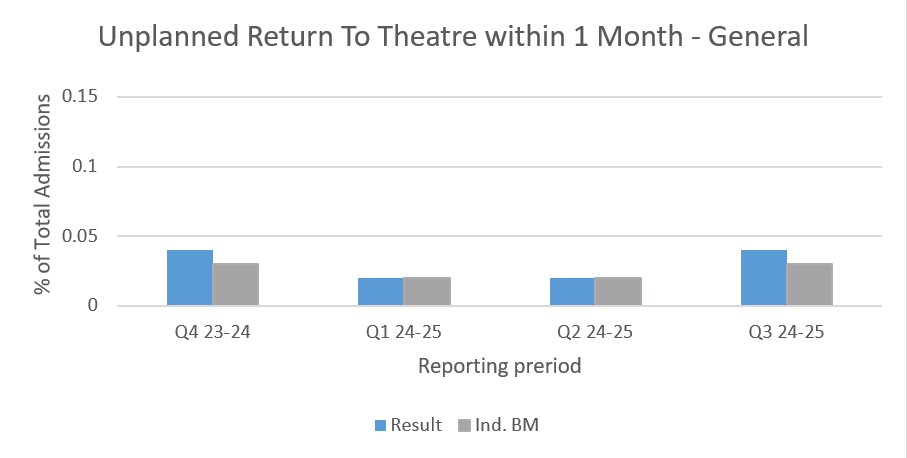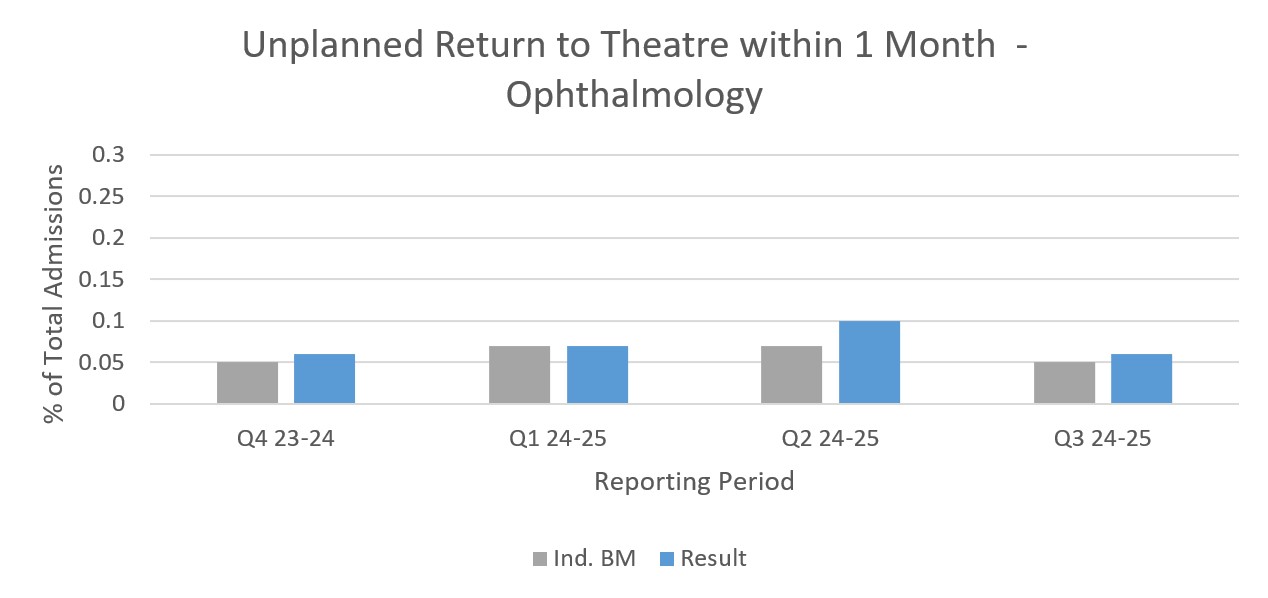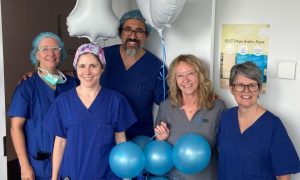About Cura
Cura Group navigation
About Cura
General Information
Patient Safety and Quality
Cura Day Hospitals Group (Cura) aims to be the acknowledged leader in the provision of quality day surgery facilities by providing and continually maintaining modern and well-equipped facilities to the highest safety standards, and being recognised by leading industry accreditation bodies. Cura believes that a safe environment is essential to quality health care as well as patient and staff well-being.
All Cura facilities aim to meet or exceed the quality standards set by our stakeholders. To achieve this, we are committed to the continuous improvement of our operations, maintaining a strong consumer focus and providing a consistent framework of sound Corporate and Clinical Governance.
To read more, please click on the below heading to expand.
National Safety and Quality Health Service (NSQHS) Standards
Clinical governance and safety and quality systems are required to maintain and improve the reliability, safety and quality of health care, and improve health outcomes for patients. At Cura Day Hospitals Group, we are committed to the continuous improvement of the safety and quality of our services, and ensuring that we provide safe and effective care. To achieve this, we implement a clinical governance framework that ensures that patients and consumers receive safe and high-quality health care.
Cura Day Hospitals Group provides patient-centred care by including patients in shared decision making and involving patients in the development and design of our health care services. Our partnerships with patients relate to many aspects of their care including the planning, design, delivery, measurement and evaluation of systems and services.
Cura Day Hospitals Group has systems and strategies in place to reduce the risk of patients acquiring preventable healthcare-associated infections, effectively manage infections if they occur, and limit the development of antimicrobial resistance through prudent use of antimicrobials as part of antimicrobial stewardship.
The medication safety strategies employed by Cura Day Hospitals Group aim to prevent the occurrence of medicine-related incidents and improve the safety and quality of medication use. Our staff are trained in risk identification and incident management to support the safe use of medicines.
Cura Day Hospitals Group’s adherence to the comprehensive care standard ensures that all patients receive coordinated delivery of health care that is aligned with the patient’s expressed goals and expectations. By delivering comprehensive care, our staff ensure that each patient’s individual care plan is clinically appropriate and minimises the risks of harm.
All Cura facilities recognise that communication is critical to the delivery of safe patient care. Our facilities actively promote the effective communication between patients, carers and families, multidisciplinary teams and clinicians, and across the health service organisation. We ensure timely, purpose-driven and effective communication and documentation that supports continuous, coordinated and safe care for patients.
The Blood Management Standard describes the systems and strategies for the safe, appropriate, efficient and effective care of patients’ own blood, as well as other supplies of blood and blood products. The actions in the Blood Management Standard are not applicable to Cura Day Hospitals Group as our facilities do not use, receive, store, collect or transport any blood or blood products.
Cura Day Hospitals Group has procedures in place for recognising and responding to acute deterioration. This ensures our staff are able to respond promptly and effectively to patients if their their physical, mental or cognitive condition deteriorates.
Cura is dedicated and committed to incorporating quality management and improvement into the operation of its Hospitals to ensure a culture of continuous monitoring and improvement in the quality of service and care is achieved, with the primary goals of patient and staff safety and achieving patient centred care. Cura encourages a proactive approach to quality management.
Each Cura facility has a comprehensive Quality Management Program based around the following key activities:
- Development, implementation and evaluation of an annual quality management plan specifically designed for the Hospital.
- Development and periodic review of policies and procedures consistent with the size and operation of the Hospital, ensuring compliance with relevant legal and regulatory obligations.
- Collection, auditing, monitoring, measurement and analysis of relevant data, including data required to be submitted to health departments and other regulatory agencies.
- Implementation of a comprehensive clinical indicator programme.
- Review of outcomes and implementation of recommendations from system reviews.
- Establishment of reporting mechanisms to provide follow up and feedback to appropriate and relevant personnel/committees.
- Establishment of mechanisms to ensure that patient requirements, feedback and satisfaction are identified and understood, with the objective of partnering with patients and achieving patient centred care in order to meet, and where possible exceed, patient expectations.
- Complaint management, internally and with external regulatory agencies.
- Continual review of mechanisms and processes involved with quality activities and implementing improvements, undertaking preventative and corrective action where required.
- Maintenance of ACHS certification, implementation of ACHS guidelines and standards, and compliance as applicable with the Australian Commission on Safety and Quality in Health Care National Safety and Quality Health Service Standards.
Patient feedback is important to all Cura hospitals as it provides us with an opportunity to continually improve the delivery of the healthcare service we provide. We actively seek feedback from patients and their carers, and ensure that all patients are provided with a feedback form following their procedure. Alternatively, feedback can be submitted via our website or to each hospital directly in writing or verbally.
The information obtained from patient feedback is collated into categories for ease of analysis. The latest reports show high levels of satisfaction in patient experience across a number of areas, such as: efficiency of the admission process, a patient’s involvement in the decision making around their procedure and care, the ease of access and location of our hospitals.
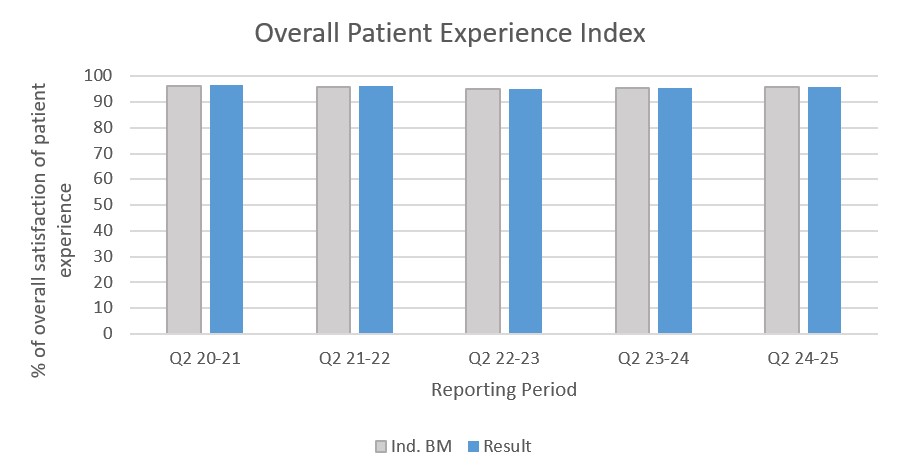

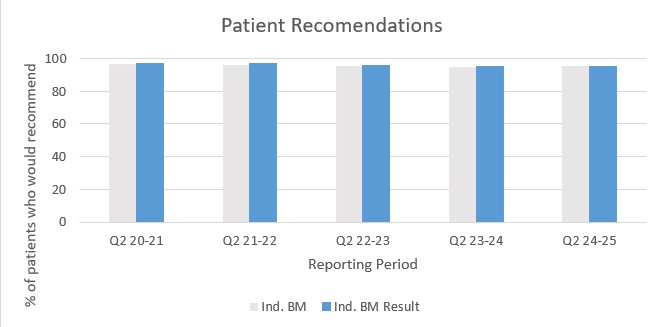
Open Disclosure is the process of open communication with a patient, carer or family support person following and adverse or unexpected event that may or may not result in harm to the patients. Cura Day Hospitals Group recognises that Open Disclosure is a patient and consumer right as well a core professional requirement and organisational obligation.
Cura Day Hospitals Group has implemented The Australian Open Disclosure Framework; an ethical framework for ensuring that staff inform patients and, where applicable, their support person, in an open, honest and empathetic manner about a patient related incident and its implications for the healthcare of those patients.
This Framework provides eight guiding principles to address the interests of patents, support persons, staff and other key stakeholder groups:
- Open and timely communication
- Acknowledgement
- Apology or expression of regret
- Supporting, and meeting the needs and expectations of patients, their family and carers
- Supporting, and meeting the needs and expectations of those providing health care
- Integrated clinical risk management and systems improvement
- Good governance
- Confidentiality
Cura Day Hospitals Group has a comprehensive infection prevention and control program in place. Our facility and staff are regularly audited for compliance with national infection prevention and control guidelines, Australian Standards for reprocessing of reusable instruments and the Australian Commission of Safety and Quality in Healthcare [ACSQHC] National Safety and Quality Health Service Standards. We work with our staff, patients and visitors to prevent the transmission of infectious agents. We achieve this through staff and patient education, promotion of hand hygiene to all, stringent surveillance, staff immunisation and implantation of evidence-based infection control interventions.
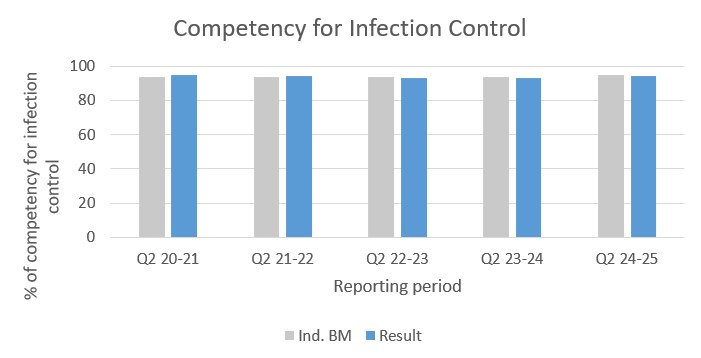
The ‘5 moments of hand hygiene’ are employed at all Cura Hospitals in accordance with Hand Hygiene Australia i.e. before touching a patient; before a procedure; after a procedure; after touching a patient and after touching a patient’s environment. It is mandatory that all Cura Staff complete the online Hand Hygiene learning module annually. Mandatory competencies are also available for all clinical staff to complete with completion of these competencies monitored by our Quality Management Systems.
NHHI Audit Two 2024

The medication safety strategies employed by Cura Day Hospitals Group aim to prevent the occurrence of medicine-related incidents, improve the safety and quality of medication use. Our staff are trained in risk identification and incident management to support the safe use of medicines. Our facilities have implemented a number of medication safety initiatives including adoption of standardised medication charts and standardised medication labelling system.
A medication error is described as errors in prescribing, dispensing, or administering medication with the result that any of the following criteria is not met; right patient, right drug, right dose, right route, right time.
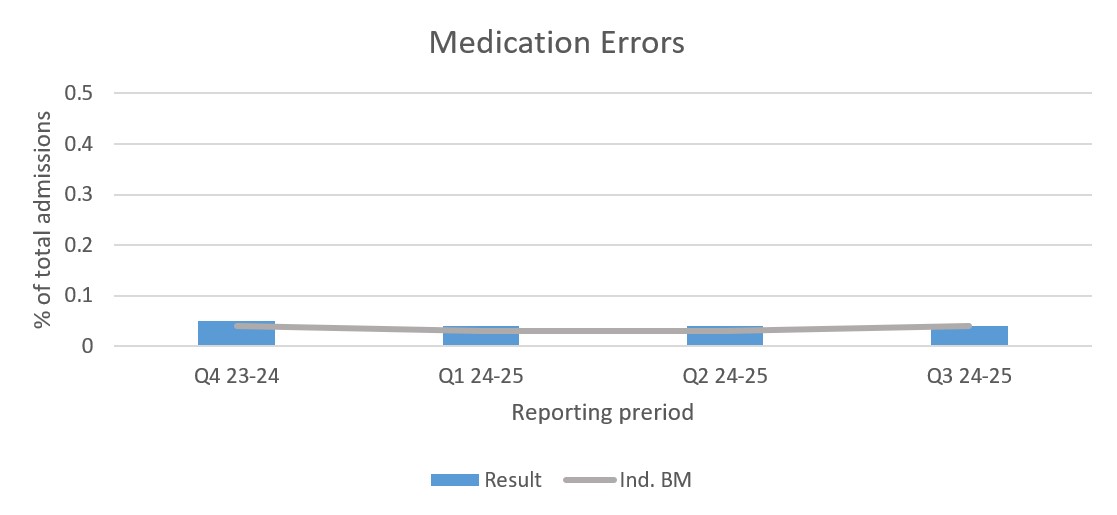
Patient Incidents & Near Misses are defined as the total number of patient incidents and near misses, i.e. those that do not result in unintended harm e.g. medication error resulting in no harm, slip or falls resulting in no injury, potential accident, lack of consent, blood product near miss resulting in no harm or injury, expressed as a percentage of the total number of patients admitted. The occurrence of patient incidents and near misses in Cura Day Hospitals Group facilities is well below the industry benchmark.

URTT (Unexpected return to Theatre) within 1 month is defined as the total number of patients returning to the theatre for same condition/procedure within 1 month of most recent discharge, expressed as a percentage of the total number of patients undergoing surgery.
The results have been collated by specialty area for ease of analysis.

